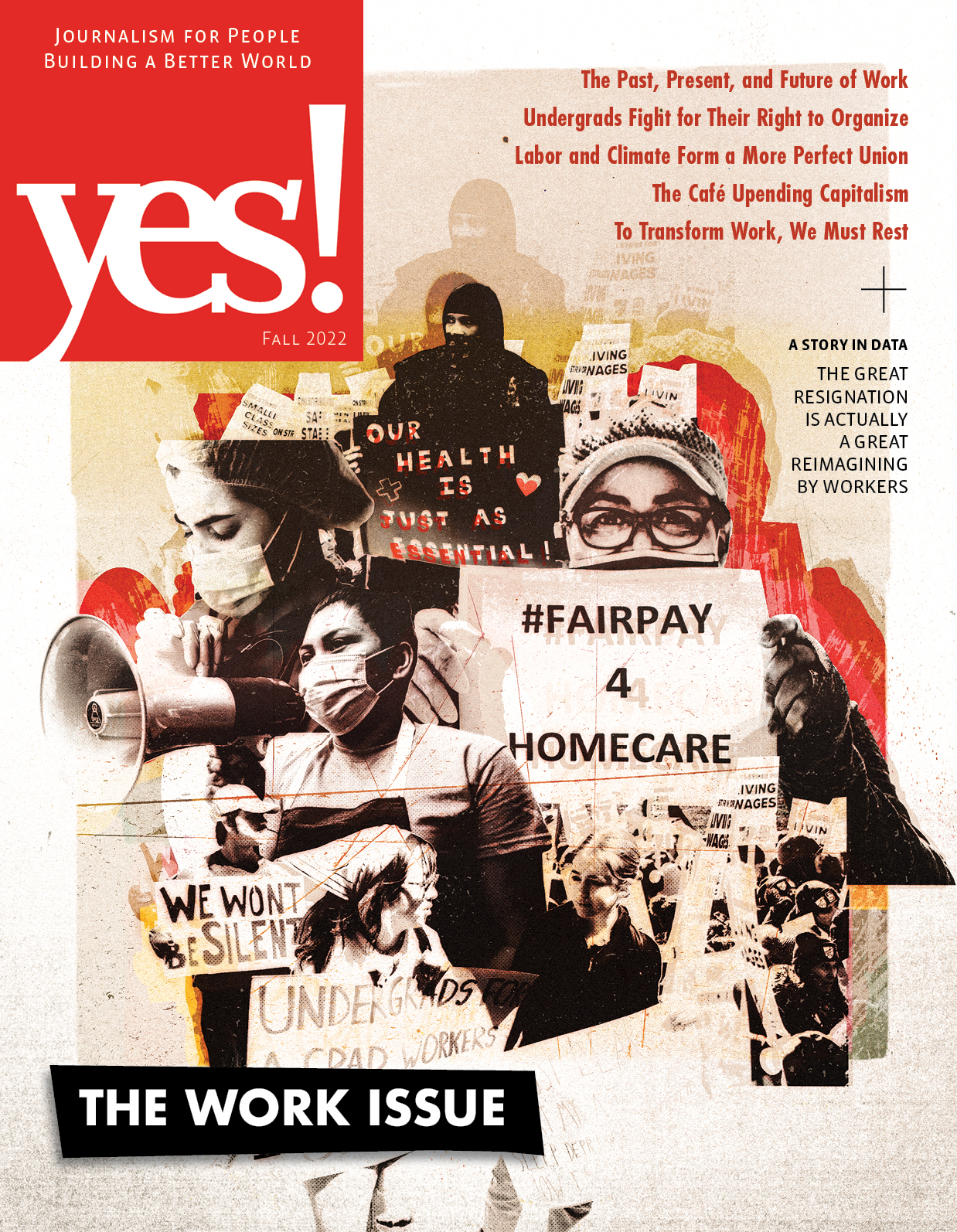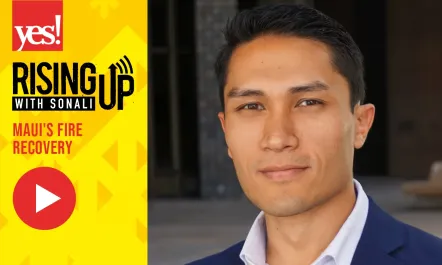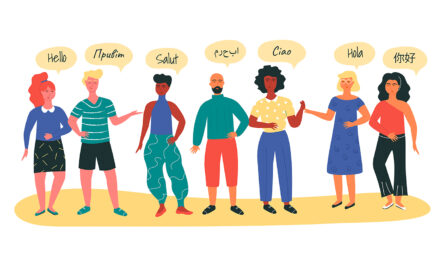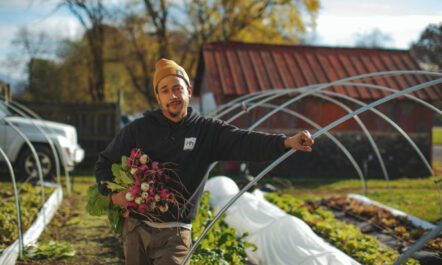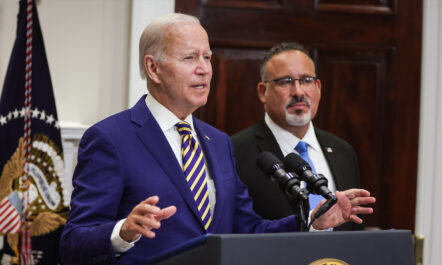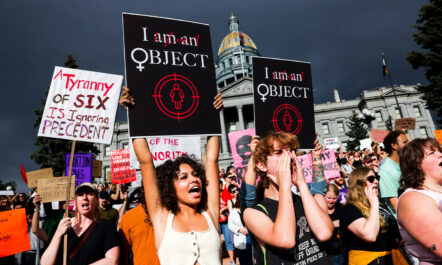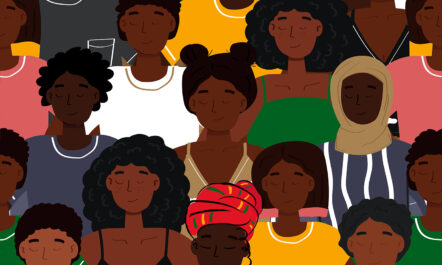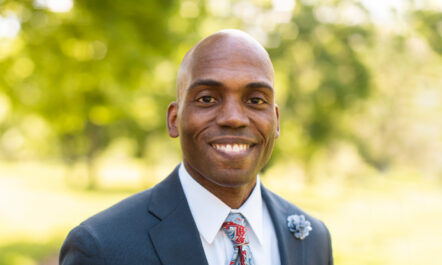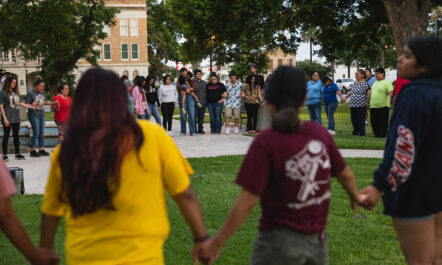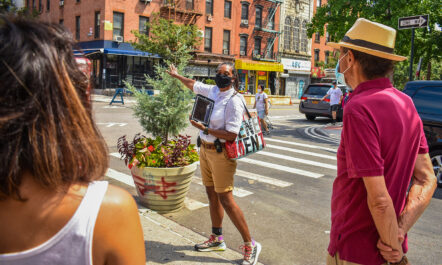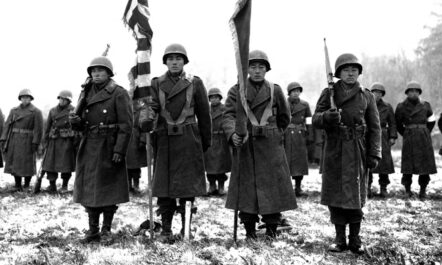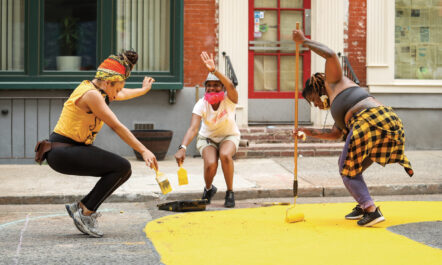More than a hundred people have so far been documented to have died in the devastating wildfires that swept the Hawaiian island of Maui, making it one of the deadliest such disasters in
Racial Justice
A Progress 2025 Vision for Immigration
Hundreds of movement leaders, activists, organizers, funders, and journalists gathered in Atlanta in June 2023 at Alight, Align, Arise, an invitation-only conference on reparations organized by the Decolonizing Wealth Project.
Accent Bias and the Myth of Comprehensibility
Expecting people to speak a language in a specific way is more indicative of a colonial mindset and less of the speaker's ability to utilize and comprehend English.
Queen Elizabeth’s Death Prompts a Reckoning of British Empire
How the queen and her reign is remembered depends on where the remembering is taking place—and by whom.
How a Methodist Preacher Became a Champion for Black-Led Sustainable Agriculture
Dennis Hutson wants to recreate a Black farming paradise in California. First he has to adapt to the climate crisis.
How Counter-Recruiters Take on the U.S. Military
Military recruiters count on economic hardship to lure young people of color to sign up. Counter-recruiters are working hard to thwart their efforts.
Black Farming Projects Look to Restore Historical Land Losses
Black and other farmers of color are seeing a restoration of land that was stolen or cheated from them as a key step to strengthening their economic power.
What Student Loan Forgiveness Means
Experts on banking, public spending, and education policy look at the impact of Biden’s plan.
An Activity Book for the Anti-Racist
Comedian W. Kamau Bell together with his co-author Kate Schatz have written a new activity book, chock full of coloring pages, crosswords, thought experiments and exercises.
Why Is America Obsessed With Racial Trauma?
People of color are pigeonholed almost exclusively into constrained narratives of trauma and rejection, our anguish commodified for consumption. It’s time to change this.
Beyond Nichelle Nichols’ Iconic Interracial Kiss
Nichols’ career arc shows how diverse casting on the screen can have a profound impact in the real world, too.
Can Twerking Be an Expression of Power?
A Black queer lawmaker posted a video on social media of herself twerking in a bikini. In response to the maelstrom of criticism, she’s reclaiming her bodily autonomy and pushing back with a new campaign.
Breaking Racial Barriers in Rowing
The sport has roots in ancient Egypt and evolved into an exclusive pastime of White upper-class men. But Brannon Johnson, the founder of the only Black-owned rowing club in the nation, is trying to change that.
We Need Racial Solidarity to Restore Abortion Rights
The politics of abortion revolve around White supremacy and the role it plays in trying to manage the reproduction of different racialized populations. We need to unite in order to fight back.
From Juneteenth to Reparations: Reclaiming Our Stolen Stories
In order to achieve full reparations, we need to reconstruct media systems built on violence, specifically anti-Black violence.
Can Juneteenth Move Beyond Symbolism?
In order to fully realize the promise of Juneteenth, historian Yohuru Williams says we need to move beyond symbolism to doing the hard work of addressing structural racism.
Mass Shootings and the Culture of Violence in the U.S.
Gun violence cannot be abstracted from a broader culture of violence and authoritarianism that calls for more gun ownership, more police, and more national security.
The Case for Joy in BIPOC Stories
When film and television creators feature people of color in their storylines, they often feel compelled to frame them via tragic histories of oppression. But what about simply letting BIPOC characters experience the same joy as their White counterparts?
Walking Tours Get a Radical Makeover, Focusing on People’s Histories
Instead of kings, plutocrats, and generals, a new kind of historical walking tour focuses on the people they repressed, and tells a more complete story.
Remembering the Japanese American Soldiers Who Fought in World War II
33,000 Japanese Americans served gallantly in the U.S. military during the war, fighting for a country that had unconstitutionally wronged them, their families and friends.
The Burden of Asian and Pacific Islander Month Under the White Gaze
Since the start of the pandemic, the sense of responsibility to educate White people on racism and anti-Asian violence has overshadowed what API Month is really about: celebration and connection.
When Asian Art Meets Elvis Presley
A queer Asian artist’s photo depicting himself as Elvis Presley sparked reactionary racism in Memphis, illustrating the difficult terrain facing artists of color.
How Do We Stop White Supremacists From Killing People of Color?
In the wake of the Buffalo massacre, scholar-activist Rosa Clemente worries that communities of color will be more heavily policed while White supremacists will continue to access guns freely.
Black Joy in Pursuit of Racial Justice
What does it mean to give ourselves permission to experience joy even when grief and rage are present?
Finding Freedom in Black BDSM
Black kink is about pleasure first and foremost. But it’s also bound up with freedom and empowerment.
Help Fund Powerful Stories to Light the Way Forward
Donate to YES! today.
